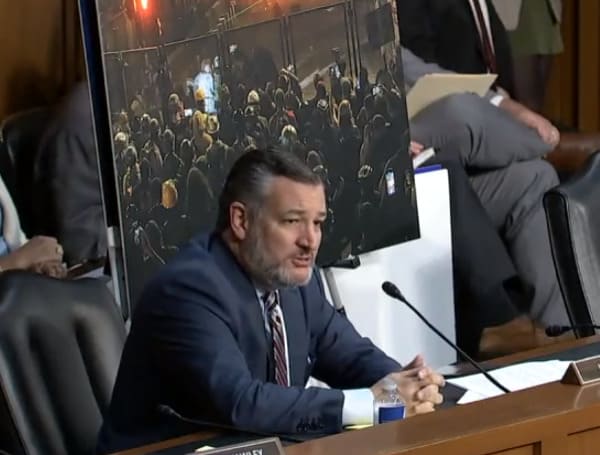A group of Republican senators, led by Sen. Ted Cruz (R-Texas), has reintroduced the “Protect LNG Act,” legislation designed to safeguard liquefied natural gas (LNG) projects from legal challenges that they argue hinder American energy production and economic growth. The bill aims to prevent courts from vacating previously approved LNG permits, clarify jurisdiction for lawsuits, and mandate expedited judicial reviews.
Joining Sen. Cruz in reintroducing the measure are Sens. John Cornyn (R-Texas), Roger Wicker (R-Miss.), and Tim Scott (R-S.C.). Companion legislation has been introduced in the House of Representatives by Rep. Wesley Hunt (R-Texas-38).
Proponents of the bill assert that it is necessary to counter what they describe as “attacks by fringe environmental groups” and “politicized courts” that delay or halt crucial energy infrastructure projects.
READ: FBI Probes ‘Targeted Violence’ Against Religious Groups In Seattle Amid Rally Clash
“American energy has the ability to metaphorically and literally power the world, and Texas is the lead exporter of U.S. LNG,” stated Sen. Cruz. “Those achievements have been under attack… This legislation counters such attacks, and I’m proud to lead the fight to protect energy producers, the jobs they create in Texas, and America’s energy leadership.”
Sen. Cornyn echoed these sentiments, highlighting the economic impact on his state. “Oil and natural gas production employs hundreds of thousands of hardworking Texans and is a critical part of the Texas economy… I am proud to lead this bill alongside Sen. Cruz to help protect energy projects across our country from lawsuits that far-left climate activists file in an attempt to hamstring American energy.”
The “Protect LNG Act of 2025” outlines several key provisions:
- Preventing Permit Vacatur: Federal courts would be barred from vacating previously authorized permits for LNG facilities if an environmental review is found deficient. Instead, courts would remand the matter to the relevant federal agency to resolve the violation while the permit remains in effect and the agency continues processing applications.
- Clarifying Jurisdiction: Lawsuits challenging LNG facility permits would be heard in the U.S. Court of Appeals for the circuit where the facility is or will be located, rather than in courts based on the headquarters of the federal agency that issued the permit.
- Expediting Judicial Review: The bill imposes a 90-day deadline for filing lawsuits challenging a federal permit for an LNG facility and requires the relevant Court of Appeals to grant expedited review.
Sen. Wicker emphasized the national security implications, stating, “The United States has an abundance of LNG, which is essential for establishing American energy dominance and safeguarding our national security. The Protect LNG Act would prevent energy production from being politicized or undermined by far-left environmental groups.”
Sen. Scott focused on the need for regulatory certainty. “The Protect LNG Act is about bringing certainty back to American energy. Radical activists are using the courts to block or delay key energy projects that have already been approved—ultimately threatening jobs, driving up costs, and undermining our national security.” He added that for South Carolina, the bill supports the state’s “growing role in energy exports” and “stability in our port economy.”
In the House, Rep. Wesley Hunt described natural gas as “the most impactful green initiative on the planet” and criticized what he termed the “radical left and the climate cartel” for allegedly weaponizing LNG issues and driving up energy costs.
READ: Massachusetts Lawmakers Slam Closure of Springfield SBA Office, Demand Answers For Small Businesses
This is not the first time Sen. Cruz has championed such legislation; he initially introduced the Protect LNG Act in 2024. The reintroduction underscores ongoing efforts by some lawmakers to bolster the U.S. LNG industry against legal and regulatory headwinds. The bill text indicates it has been read twice and referred to the appropriate Senate committee for consideration.
Please make a small donation to the Tampa Free Press to help sustain independent journalism. Your contribution enables us to continue delivering high-quality, local, and national news coverage.
Connect with us: Follow the Tampa Free Press on Facebook and Twitter for breaking news and updates.
Sign up: Subscribe to our free newsletter for a curated selection of top stories delivered straight to your inbox.
